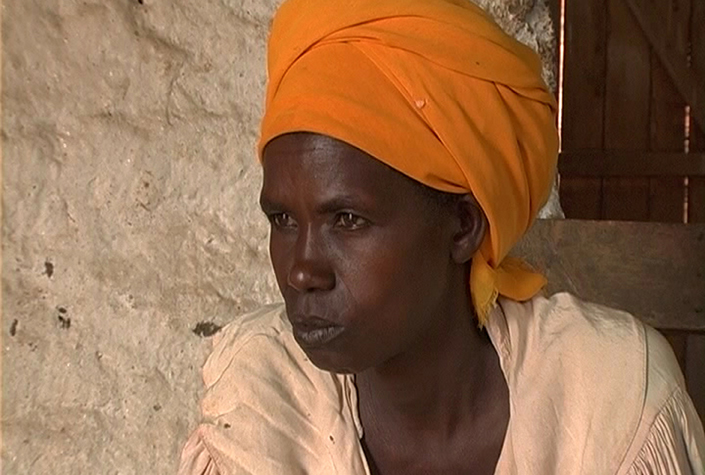Rwanda, the Hills Speak
Belgium 2005 | 50 Min. | BetaSP, OmeU
Rwanda, eleven years after the Tutsi genocide – The provisional government has implemented an extraordinary law enforcement procedure, the Gacaca-courts, in order to bring persons accused of crimes against humanity to justice. Those who confess can count on mitigation of punishment; however, the courts only acknowledge a confession if it is honest and truthful and if the perpetrator shows repentance and penance and officially apologizes to the victims’ family. In a documentation of three cases, the film observes the effects of this initiative. For the first culprit, the apology is a cynical strategy to obtain freedom; the second feels no remorse either. Only the third figure, Francois, who was forced to kill his brother in order to survive, is keen on reconciliation. In this impressive documentary, Bernard Bellefroid poses the universal questions of guilt and atonement: Can the plea for forgiveness lead to a reconciliation between victim and perpetrator? Can a man who has killed other men, find the way back into society if he confesses his crime, offers pentance and pleads for forgiveness?



